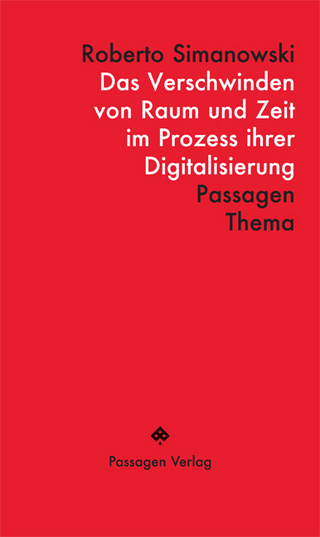
Canadian Critical Luxury Studies
Intellect Books (Verlag)
978-1-78938-515-1 (ISBN)
- Titel z.Zt. nicht lieferbar
- Versandkostenfrei
- Auch auf Rechnung
- Artikel merken
Canadian Critical Luxury Studies: Decentering Luxury is a dynamic new contribution to the study of luxury. The essays in this collection challenge Euro- and US-centric perceptions that bind luxury to either a colonial past or a consumerist present. The book announces a new collective of thinkers who focus on Indigenous and Canadian instances of luxurious production, experiences and sites to propose a new definition of luxury that includes a plurality of regional practices highlighting that Canadian luxury centres on community and connection.
Each of the interdisciplinary contributions analyse luxury from different vantage points to understand why luxury has succeeded or failed in the Canadian context. From the history of the fur trade to the latest Indigenous fashion movement, from the T. Eaton Co.’s 1920s Made-in-Canada campaign to the on-again-off-again Toronto Fashion Week, from Vancouver public art commissions to Montréal’s future-forward fashiontech sector, the essays in this volume explain what makes and breaks Canadian luxury.
These original case studies redefine luxury for Canada – a former colonial possession and contemporary second-tier cultural market – and lay the foundation for the critical study of luxury in other historically secondary geographies that produce, consume and circulate material and symbolic luxuries. The collection ultimately challenges old myths and the mystique surrounding European luxury to give it a new lustre that shines light on those actors who have been historically excluded from its privilege: Indigenous peoples, immigrants, the working classes. It sheds light on the reasons that conventional expressions of luxury may fail in secondary markets and offers guidance for fashiontech innovations that invest in the individual without imposing dehumanizing values of efficiency and rational measurement.
Although focused on the Canadian context, the book will appeal to an international audience of scholarly and industry readers. Its interventions about broadening the focus of luxury studies beyond traditional sites in Western Europe make it an important text for global audiences. It offers an alternate reading of conventional luxury histories, sites and practices; in doing so, it models a national approach to luxury that can be applied to alternate national markets.
Jessica P. Clark is a historian of Britain and empire, with a focus on gender, consumption and labour, and an associate professor of history at Brock University, Ontario, Canada. Nigel Lezama is an associate professor of French studies at Brock University and works at the intersection of fashion, luxury, literary and cultural studies.
Contributions are drawn from a number of fields including, but not limited to, Indigenous studies, museum studies, business management, cultural studies, fashion studies, technology and industry. Contributors include Kathryn Franklin, University of Toronto; Rebecca Halliday, Toronto Metropolitan University; Riley Kucheran, Toronto Metropolitan University; Valérie Lamontagne, Concordia University; Marie O'Mahony, Ontario College of Art and Design; Julia Polyck-O'Neill, York University, Ontario.
This is a primarily an academic book. It is of great relevance to scholars within the subfield of critical luxury studies, as well as scholars of consumer and commodity cultures more broadly, and those working or interested in Canadian studies, media studies, critical studies, and historians.
Researchers and postgraduate students studying luxury as well as those studying the history of the development of Canada, its colonial past and the marginalization of Indigenous people, and with the development of fashion technologies will also find it useful.
Academics and practitioners concerned with the development of city and nation branding will find the book of value.
Jessica P. Clark is a historian of Britain and empire, with a focus on gender, consumption and labour. She is the author of The Business of Beauty: Gender and the Body in Modern London (Bloomsbury, 2020) and an associate professor of history at Brock University. Nigel Lezama is an associate professor of French studies at Brock University and an editorial board member for Fashion Studies and the new In Pursuit of Luxury journal. Examining how marginalized and peripheral fashion and luxury practices transform dominant culture, he works at the intersection of fashion, luxury, literary and cultural studies.
List of Figures
Acknowledgements
Introduction – Nigel Lezama
PART 1: RESURGENCE AND REVISION
1. Luxury and Indigenous Resurgence – Riley Kucheran with Jessica P. Clark and Nigel Lezama
2. Putting Canada on the Map: A Brief History of Nation and Luxury – Jessica P. Clark
3. From Unvalued to Surplus Value: ‘Made-in-Canada’ Luxury at Eaton’s in the 1920s – Nigel Lezama
PART 2: SPACE AND PLACE
4. Runway off the Mink Mile: Toronto Fashion Week and the Glamour and Luxury of Yorkville – Kathryn Franklin and Rebecca Halliday
5. Vancouver’s Monuments to Capital: Public Art, Spatial Capital and Luxury – Julia Polyck-O’Neill
PART 3: FUTURE OF CANADIAN LUXURY
6. Beyond the Catwalk: What Happens When Luxury Meets Digital? – Marie O’Mahony
7. Contemporary Case Studies of Performative Wearables – Valérie Lamontagne
Epilogue – Jessica P. Clark and Nigel Lezama
References
Contributors
Index
| Erscheinungsdatum | 03.05.2022 |
|---|---|
| Zusatzinfo | 19 Halftones, black and white |
| Sprache | englisch |
| Maße | 170 x 244 mm |
| Themenwelt | Kunst / Musik / Theater ► Design / Innenarchitektur / Mode |
| Sozialwissenschaften ► Kommunikation / Medien ► Medienwissenschaft | |
| ISBN-10 | 1-78938-515-6 / 1789385156 |
| ISBN-13 | 978-1-78938-515-1 / 9781789385151 |
| Zustand | Neuware |
| Informationen gemäß Produktsicherheitsverordnung (GPSR) | |
| Haben Sie eine Frage zum Produkt? |
aus dem Bereich


